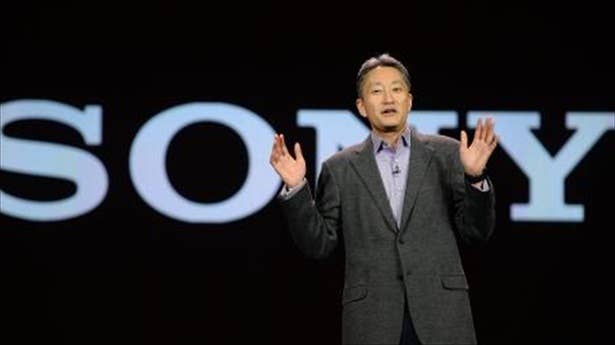Shifting the mood on Sony
2014 begins with Sony resurgent - but much hard work lies ahead
CES is far from being the pivotal point on the landscape of the tech industry it once was - indeed, the show is a hair's breadth from being a dumping ground for also-rans, has-beens and wanna-bes, as genuinely important tech firms largely ignore it in favour of their own events or more specialist arenas. Of the major companies who do still attend the show, Sony is arguably the most interesting - and this year, the firm took full advantage of that position, using its keynote to introduce a mix of products and services that provided an intriguing sample of its 2014 plans.
That's old news, of course, and I have no intention of retreading the coverage of Sony's CES that you've almost certainly already read. What's been interesting in the following days, however, is the change in tone that's overcome almost every commentator or analyst who covers Sony. All the adjectives and adverbs have done a 180 degree turn; suddenly, the firm that's been all at sea without a rudder for so many years is "confident", "focused", "innovative" and plenty more besides.
Part of that is simply a testament to the power of a good presentation. Sony's CES keynote was indeed confident and focused. It was well scripted and stage managed, achieved a good balance of new products from across a number of different categories, didn't dwell too long on any individual product or feature and managed to project an aura of assured confidence without straying into the realms of arrogance. Those responsible for the presentation at Sony deserve praise for this, because it's not easy to achieve - even Apple's legendary keynotes often falter or lose their pacing, while longtime E3 attendees will recognise the many, many occasions on which keynotes from all the major companies have missed those marks.
Such a presentation does a lot to win hearts and minds, even among the professional observers - analysts and journalists - who are meant to be immune to such things, but never really are. Of course, the best presentation in the world can't do a great deal to rescue a truly weak product line-up, but a bad presentation can ruin a good product, and a great presentation can create strong positive sentiment over an average one, or effectively paper over cracks in a company's portfolio. If you doubt the importance of presentations and keynotes, I invite you to consider two ends of the spectrum - Nintendo's shambolic, poorly managed and generally amateurish E3 conferences of recent years, and Nintendo's tightly focused, confident, playful and thematically consistent Nintendo Direct broadcasts. The mind still boggles at how the same company can produce two pieces of communication that are so radically divergent in terms of quality and effectiveness, but you only need to look at the sentiment around coverage of the announcements in each medium to see how effective the better communication and presentation of Nintendo Direct is.
"It seems like the console has been a perfect marriage of everything Sony has going for it - the company's traditional prowess in engineering, matched up with a newfound humility and practicality..."
While I believe that Sony's excellent presentation has done wonders for the firm's image - and this is no overnight transformation, as the company has gradually been getting better and better at presenting a positive image in public, coming a long, long way since the embarrassing memories of giant enemy crabs - I don't think that it explains the entirety of the shift in atmosphere around the company. Rather, I think that a lot of analysts and commentators have been on a journey with Sony over the past year. It's been a bumpy journey over some rough ground and a few winding tracks, but by and large, the narrative of Sony as a tired old company whose glory days were long past has become less appealing. The new view of Sony is of a resurgent firm shaking off the past - not entirely successful in that, as yet, but certainly on the way to shedding a restrictive old carapace and becoming a major force in consumer technology once again.
If that's actually what happens - and there are many obstacles still in the way, from the firm's continuing devotion to the highly commoditised and unattractive television business through to the precarious macroeconomic situation in which Japan finds itself right now - then CES 2014 might come to be seen as a turning point, but the real changes began in 2013. In fact, out of the world's large technology firms, it would be hard to find one that had a better year in 2013 from a product perspective than Sony. Apple, Google and Samsung were all more profitable, of course, but none of them really evolved their offerings in any significant way. Sony, though, may have sown the seeds of recovery in 2013.
What were those seeds? There were several. There was the Xperia range of phones, specifically the Z and Z1, which won widespread praise and are generally seen as the best Android phones of the year - sporting features like superb cameras (unsurprisingly, as even Apple turns to Sony for the camera components in its iPhones) and waterproof casings. The firm's new tablets were also well reviewed, if not hugely commercially successful, and are probably the best Android tablets on the market - albeit at a rather higher price point than much of the competition. New TVs brought 4K enticingly close to mass market prices. The continued march of the Alpha range of high-end cameras started to actually rattle the market dominance of Nikon and Canon; neither party will lose a great deal of sleep over Sony yet, of course, but anecdotally it seems that plenty of consumers and professionals alike are switching to Sony's DSLRs, while the company's beautiful RX1 full-frame compact camera is a high-end object of lust for many photographers.
Then, of course, there was the PS4. Little encapsulates the resurgence of Sony like the PS4 - a console which has been widely praised by developers, which seemingly wrong-footed Microsoft at every turn and which ended up launching, tremendously successfully, at a lower price point than its rival yet with markedly higher technical specifications. It seems like the console has been a perfect marriage of everything Sony has going for it - the company's traditional prowess in engineering, matched up with a newfound humility and practicality that has improved everything from third-party developer relations to how it communicates with consumers. The new Sony, open, communicative and lacking any of the arrogance it once possessed, even manages to make its failures less damaging than they might once have been; the PS Vita remains a miserable flop in sales terms, despite the slight pick-me-up afforded by new hardware in Japan last autumn, yet it has become a darling of the hardcore and attracted a vocal following who may even become instrumental in giving the device a reasonable future.
All of this is set against a backdrop of a falling Yen, which has made it easier for Sony to sell exports and make profits, and cautious optimism about "Abenomics", the economic recovery program proposed by Japanese prime minister Shinzo Abe (although I'd argue that in this case, the caution is rather more warranted than the optimism). Yet Sony's recovery is only boosted by Japan's improving health, not caused by it. The company significantly outperformed the NIKKEI index in 2013, making the case that Sony is getting back on its feet all on its own.
"Loeb's approach was every bit as short-sighted as you'd expect from a hedge fund manager - taking the opinion of a hedge fund manager about how to run a company is like asking a butcher for veterinary advice"
This is, of course, the positive reading. It would be amiss not to point out that 2013 was also a year in which Sony's financials came under tough scrutiny, with assets being sold off to make ends meet; Kaz Hirai's restructuring plans, too, were questioned, while investor Daniel Loeb agitated publicly for the company to be broken up. Loeb's approach was every bit as short-sighted as you'd expect from a hedge fund manager - taking the opinion of a hedge fund manager about how to run a company is like asking a butcher for veterinary advice - but it received widespread coverage and rattled the company's management somewhat. Moreover, Sony Pictures had a terrible year, banking on all the wrong blockbusters (Will Smith vehicle After Earth being a particularly egregious failure). All of these factors could have chimed together to produce a terrible year for the firm and a gloomy outlook from commentators - making the strength of Sony's product line and confidence of its management outlook all the more impressive.
None of which is to say that 2014 is a cakewalk for Sony. It starts the year on a much more positive note than 2013, but in some ways, faces even greater challenges. This year, it needs to make good on promises which were implicit in 2013's line-up. The Xperia phones need to make headway in the market, and their successors need to be equally impressive. 4K TVs actually need to start making some sales - and the TV business as a whole needs to prove that it still has a place at a modern technology firm, something which I personally have deep reservations about. The Alpha needs to cement its position and show that it's got what it takes to survive the present crunch in consumer and prosumer camera sales. PS4, of course, needs to maintain momentum, and Vita needs to find some. And PlayStation Now, the company's most ambitious service offering, needs to work. That's a big ask, as the firm's cautious rollout schedule - one territory at a time, with an extensive beta programme first - suggests. One of the things I liked about Gaikai's approach prior to being acquired by Sony was that the firm seemed realistic about the limitations of streaming games over existing Internet infrastructure, as compared to OnLive, whose ludicrously over-ambitious approach generally yielded blurry, laggy experiences for people with consumer-level broadband. I hope that PlayStation Now has something impressive up its sleeve to ensure it doesn't suffer the same fate; if it can actually be made to work, it will be a huge coup for Sony as a whole, especially as it'll be a solid USP for this year's Bravia TVs.
There's always a danger, of course, that analysts and commentators are fickle. They've started out 2014 with a narrative about a resurgent Sony; there will now be plenty of people looking for signs that the recovery is faltering. Right now, the company looks like it's on track to restore itself to a position of relevance and importance in consumer technology - but much of the hard work is yet to come. For the sake of the industry as a whole, we should all hope fervently that Sony is up to that task.









